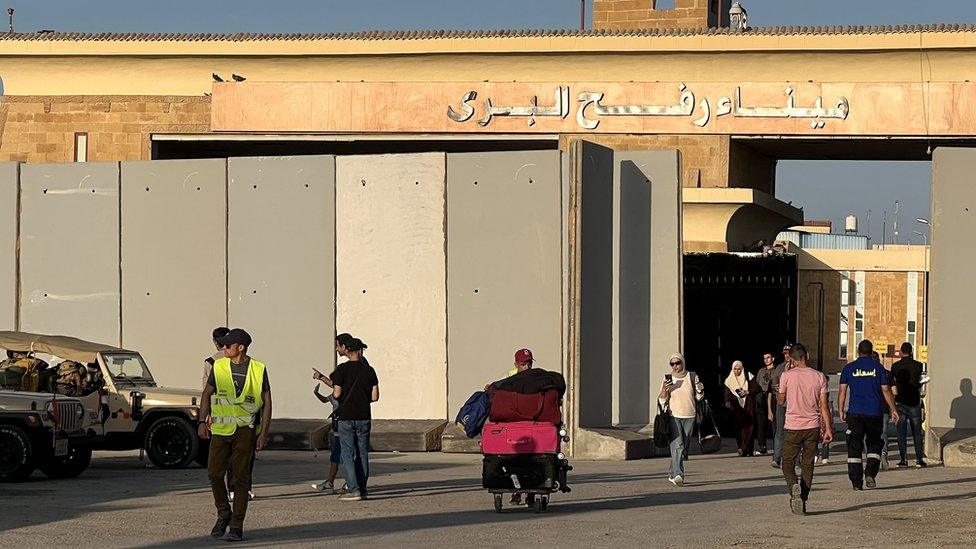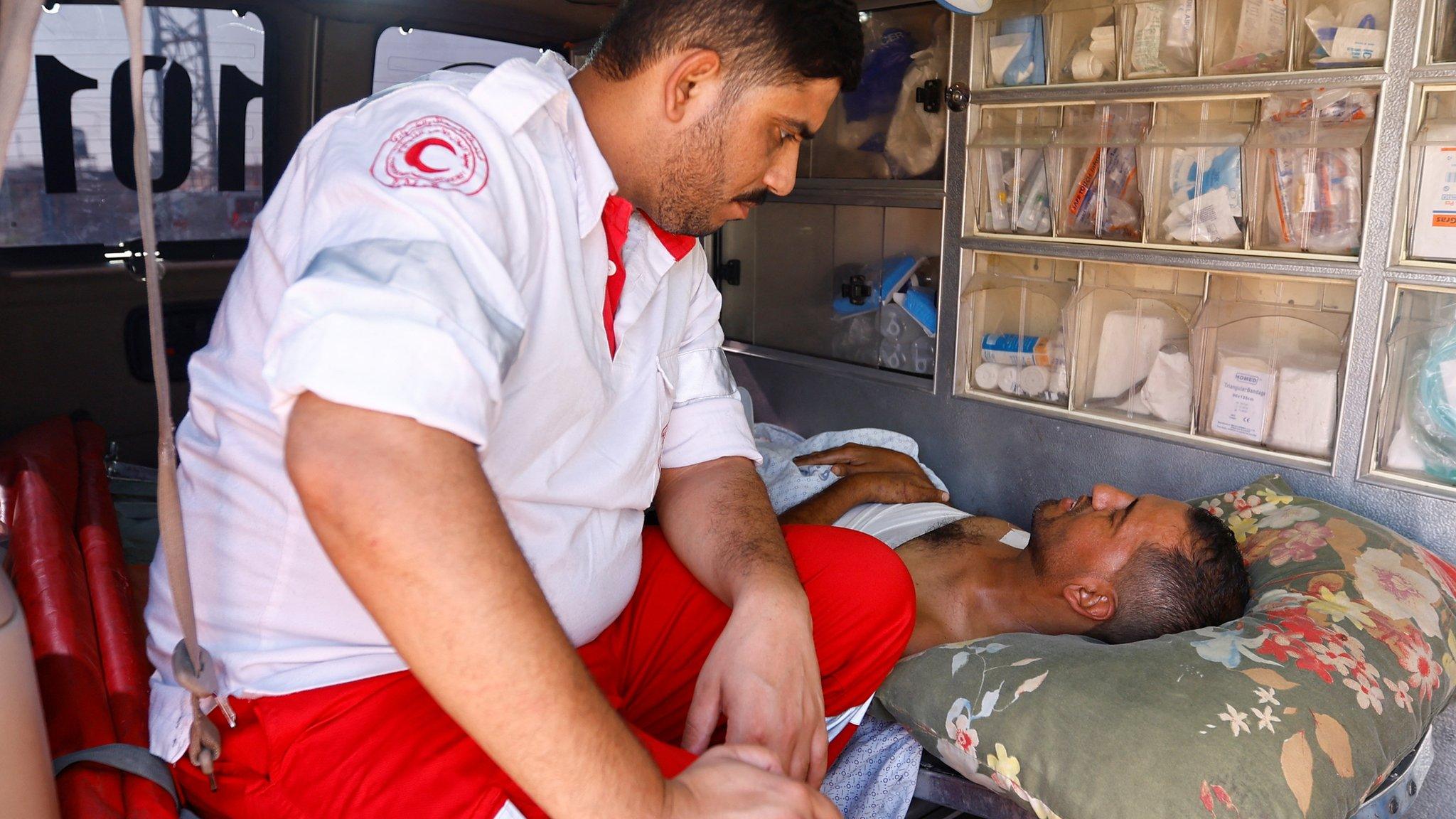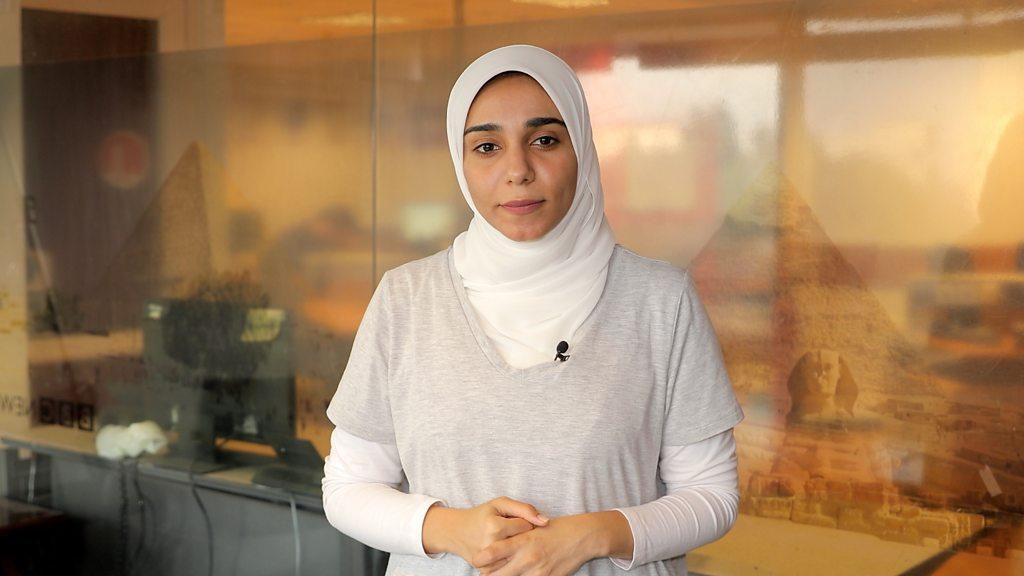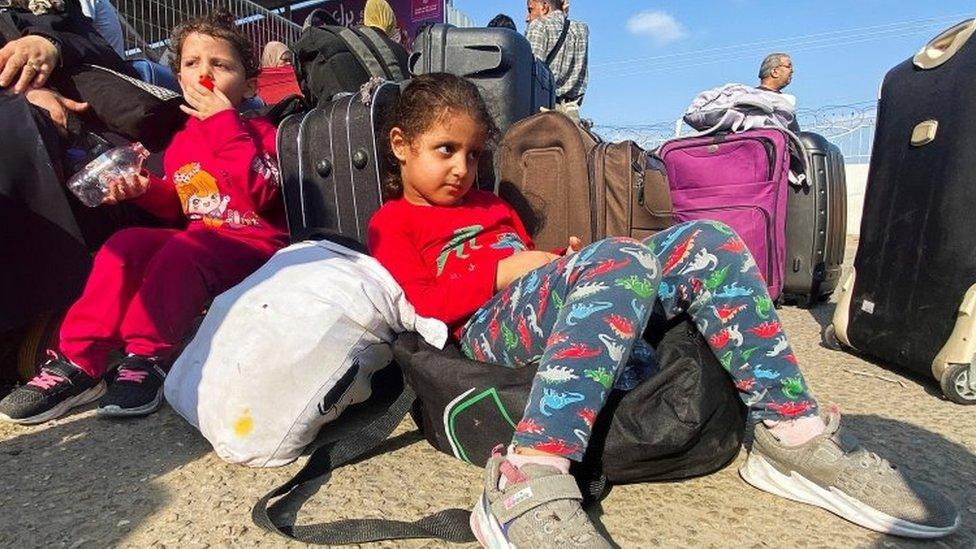Rafah border crossing between Gaza and Egypt fails to open for foreigners
- Published

Rafah is the southernmost post of exit from Gaza
The exit of foreigners from Gaza via the Rafah border crossing was halted on Saturday in an apparent dispute over evacuating injured patients.
Hundreds of foreign citizens have escaped through the crossing into Egypt in the past few days.
But on Saturday, no foreign nationals, dual nationals or injured patients were let through, Palestinian sources said.
Hundreds of people with foreign passports went to the border, but the gate did not open.
Sources from the crossing authorities on the Palestinian side told the BBC that movement of people with foreign passports is not being allowed until there is agreement on the safety of transferring injured patients.
There has been no official statement from the authorities as yet.
The UK Foreign Office confirmed that British citizens in Gaza had been unable to leave via the Rafah crossing.
A spokesperson told the BBC: "We are disappointed that the Rafah crossing has been temporarily closed today.
"This continues to be a complex and challenging situation and we are using all diplomatic channels to press for its reopening in coordination with our international partners."
The Rafah border crossing between Gaza and Egypt opened on Wednesday to allow a number of civilians to leave Gaza.
It was their first opportunity to do so since the war began on 7 October, when Hamas gunmen staged an unprecedented assault on southern Israel that killed more than 1,400 people.
Since then, the Israeli military has launched a massive bombing campaign on Gaza, placed the strip under a "complete siege" and recently launched a ground assault on the north of Gaza. The Hamas-run health ministry in Gaza says 9,488 people have been killed.
Rafah is the southernmost post of exit from Gaza and borders Egypt's Sinai peninsula.
Mohammed Ghalayini, a British scientist from Manchester who had been in Gaza visiting family when the war began, accompanied his uncle to the crossing earlier this week after he was named by Gaza authorities on the list of approved evacuees.
"People are really afraid of what's going on and so if they have a chance to leave, they're trying to leave," he told the BBC.
"But getting to the border is a struggle as well, because fuel supplies are short," he added. "So you know, I saw people arriving on a donkey cart with their luggage at the border."
The crossing, which has been open and shut frequently over the years, is now also the only crossing point for humanitarian aid.
Israel has not allowed any fuel shipments to enter the Strip since the start of the war. It has also cut off electricity supplies, prompting calls from UN agencies for fuel supplies to be let into Gaza to power basic services.
But on Saturday, US special envoy David Satterfield told reporters that when the fuel runs out in Gaza, there is an agreed mechanism to bring more in.
On Friday, an ambulance that had been attempting to transport an injured person to the Rafah border crossing was hit outside Gaza City's biggest hospital, according to the Palestinian Red Crescent.
The agency says 15 people were killed in the incident.
The Israeli military said a number of Hamas fighters had been killed and accused Hamas - which is designated a terrorist group by Israel, the US, UK and other powers - of transferring militants and weapons in ambulances, although it has not yet supplied evidence of this.

Have you been affected by the issues raised in this story? Email haveyoursay@bbc.co.uk, external.
Please include a contact number if you are willing to speak to a BBC journalist. You can also get in touch in the following ways:
WhatsApp: +44 7756 165803
Tweet: @BBC_HaveYourSay, external
Please read our terms & conditions and privacy policy
If you are reading this page and can't see the form you will need to visit the mobile version of the BBC website to submit your question or comment or you can email us at HaveYourSay@bbc.co.uk, external. Please include your name, age and location with any submission.

More on Israel-Gaza war
Follow live: Latest updates
Hostages: Children must be off limits, says father of abducted kids
From Gaza: Stories of those killed in Gaza
History behind the story: The Israel-Palestinian conflict

Related topics
- Published2 November 2023

- Published1 November 2023

- Published1 November 2023
